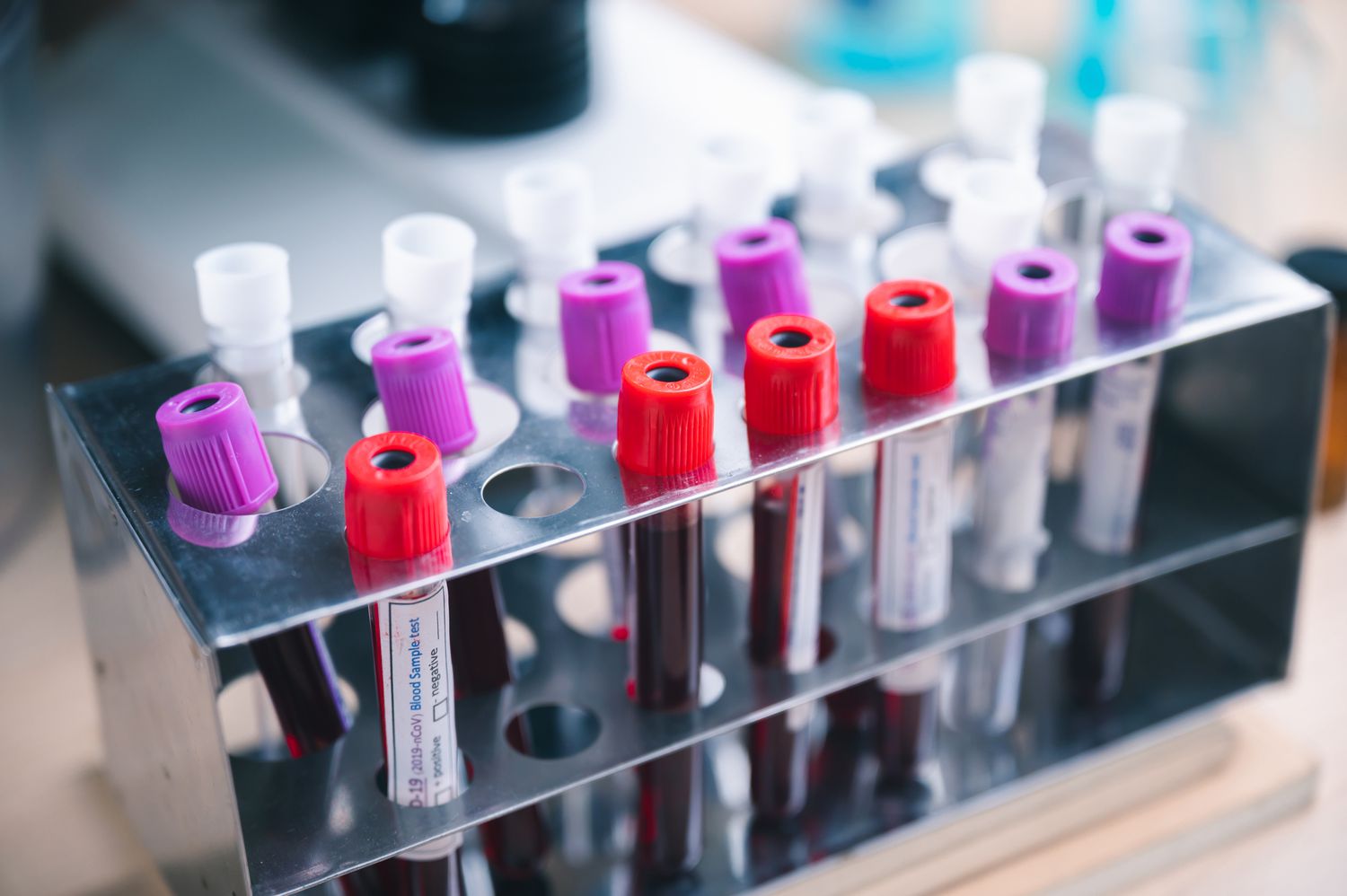FDA Grants Approval for Pioneering Blood Test for Colorectal Cancer Detection

The Food and Drug Administration (FDA) has approved a blood test that can screen for colorectal cancer in people over the age of 45 at average risk for the disease.
The Shield blood test, manufactured by Guardant Health, was approved on Monday. It marks the first time a blood test has been approved as a primary screening tool for colorectal cancer (CRC), which means that it can be offered in doctors' offices alongside other screening methods.
According to Guardant Health, the Shield test also 'meets requirements for Medicare coverage.' The test should be available within a week, at which point Guardant Health will release more information about its list price, a company spokesperson told the New York Times.
The test is meant to be a more convenient option for people in need of CRC screening who might otherwise skip colonoscopies or stool tests because they're unpleasant.
“This is a promising step toward making more convenient tools available to detect colorectal cancer early while it is more easily treated,” William Grady, MD, a gastroenterologist at Fred Hutchinson Cancer Center, said in a press release.
Back in May, an FDA advisory panel voted that the Shield test was safe and effective, after reviewing evidence from a study conducted by Grady and his colleagues.
The research, published in March in the New England Journal of Medicine, showed that the Shield blood test correctly detected CRC in 83% of people confirmed to have it.
“We know that the more screening test options people have, the more likely they are to participate in cancer screening,” Grady told Health.
However, the study and the expert FDA panel noted that the Shield blood test does have its limitations—the blood test's detection rate was similar to that of at-home stool tests, but not as high as that of the gold-standard colonoscopy. For 10% of participants, the blood test falsely gave a positive result when the colonoscopy found nothing.
'This is something that I think patients can adhere to a little easier,' FDA advisory panelist Vikesh Singh, MD, director of the pancreatitis center at Johns Hopkins Medicine, said during the May 23 meeting. '[But] is it good enough to go home and say, 'Look, I don't have a problem, I don't need a colonoscopy?' I'm not so sure it can provide that reassurance.'
Colorectal cancer, which originates in the colon or rectum, is the third most diagnosed cancer in adults in the U.S. Early detection could prevent more than 90% of colorectal cancer–related deaths, the researchers wrote. Yet more than a third of the screening-eligible population—those aged 45 to 75—isn’t up to date with screening.
For the study, researchers included about 7,800 people at average risk of CRC, meaning they had no family or personal history of the disease, nor did they have inflammatory bowel disease or any genetic syndromes putting them at an increased risk.
The participants' blood was screened using the Guardant Health Shield test—it functions by detecting the presence of circulating tumor DNC (ctDNA), or fragments of cancer cell DNA, in the bloodstream.
“We can confirm that these fragments of DNA come from cancer cells because of the unique mutations that are only present in the cancer cells and absent in other healthy tissues in the body,” Alisha Bent, MD, an assistant professor of gastrointestinal medical oncology at the University of Texas MD Anderson Cancer Center who was unaffiliated with the study, told Health. “When this test is used in patients with colorectal cancer, it is specific for that tumor and will not detect other cancers.”
The team found that the blood test’s sensitivity was 83%, and the specificity—or ability to find a negative result in disease-free people—was 90%, according to Grady.
He said the results are similar to those of two types of stool tests. For example, one type of stool test, called FIT, has a sensitivity rate of 76% and a specificity rate of 85%. The rates for Cologuard, another type, are a bit higher, at 92% for sensitivity and 90% for specificity.
While the blood test represents another early-stage detection option, Grady said colonoscopies are still the best way to detect and prevent CRC.
And if a Shield blood test does come back positive, people would still need to undergo a colonoscopy to see if they have precancerous lesions, which the blood test can’t typically detect.
“Colonoscopy is the gold-standard screening test for colorectal cancers that allows physicians to directly visualize the entire colon and rectum and remove tumors or polyps that may turn into cancer in the future,” Bent said.
Even though the Shield test may not be as effective as a colonoscopy, having another screening option available is a positive step, according to experts. Some individuals with colorectal cancer (CRC) may experience symptoms like fatigue or changes in bowel habits, while many others may not show any signs of the disease. That's why it is essential for people to undergo screening for CRC, stated Grady.
"Currently, when individuals are presented with the choice of CRC screening through a stool-based test or a colonoscopy, half of them choose to not do either," he said.
The introduction of a blood test will hopefully encourage more individuals to undergo screening more frequently, especially since a significant number currently choose to forgo screenings, Grady noted.




